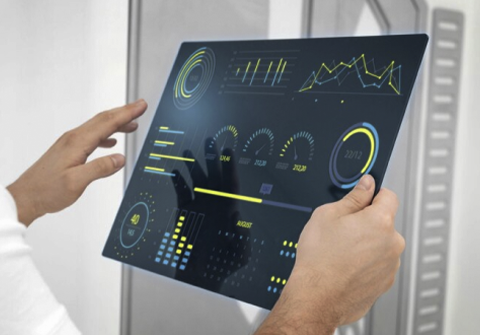In today’s data-driven world, the ability to understand and interpret information quickly and effectively is paramount. Tableau has emerged as a leading data visualization and analysis tool, empowering users to transform raw data into insightful and actionable dashboards and reports. This article provides an introduction to Tableau, exploring its core functionalities, benefits, and applications across various industries. Whether you’re a seasoned data analyst or just beginning your journey into data exploration, understanding Tableau can significantly enhance your ability to communicate data-driven stories.
What is Tableau?
Tableau is a powerful business intelligence and data visualization software that allows users to connect to various data sources, analyze data, and create interactive dashboards and reports. Unlike traditional spreadsheet software, Tableau is specifically designed for visual exploration, enabling users to quickly identify trends, patterns, and outliers within their data. Its drag-and-drop interface and intuitive design make it accessible to users with varying levels of technical expertise, from business users to data scientists. The software’s strength lies in its ability to present complex data in a clear, concise, and visually appealing manner, facilitating better decision-making.
Key Features and Benefits
Tableau boasts a wide array of features that contribute to its effectiveness as a data analysis tool. Its ability to connect to diverse data sources, including spreadsheets, databases, and cloud services, provides flexibility and accessibility. The drag-and-drop interface simplifies the process of creating visualizations, allowing users to quickly experiment with different chart types and data aggregations. Interactive dashboards enable users to drill down into specific data points and explore relationships between variables. Furthermore, Tableau’s collaboration features allow teams to share insights and work together on data analysis projects. The benefits of using Tableau include improved data understanding, faster decision-making, enhanced communication, and increased efficiency in data analysis workflows.
Use Cases Across Industries
Tableau’s versatility makes it applicable across a wide range of industries. In the retail sector, it can be used to analyze sales data, identify customer trends, and optimize inventory management. In healthcare, Tableau can help visualize patient data, track disease outbreaks, and improve healthcare outcomes. Financial institutions can leverage Tableau to analyze market trends, detect fraud, and manage risk. Marketing teams can use Tableau to track campaign performance, analyze customer behavior, and optimize marketing strategies. The ability to quickly visualize and analyze data makes Tableau a valuable tool for any organization seeking to gain a competitive edge through data-driven insights.
Getting Started with Tableau
For those new to Tableau, several resources are available to help you get started. Tableau offers a free public version that allows you to create and share visualizations online. The Tableau website provides extensive documentation, tutorials, and training videos. Online courses and communities offer opportunities to learn from experienced users and connect with other Tableau enthusiasts. Experimenting with sample datasets and exploring the software’s features is a great way to familiarize yourself with Tableau’s capabilities. Start with simple visualizations and gradually progress to more complex dashboards as you gain experience.
Tableau has revolutionized the way organizations approach data analysis and visualization. Its intuitive interface, powerful features, and broad applicability make it an indispensable tool for anyone seeking to unlock the potential of their data. By embracing Tableau, businesses can gain a deeper understanding of their operations, identify opportunities for improvement, and make more informed decisions. As data continues to grow in volume and complexity, the ability to effectively visualize and analyze it will become increasingly critical, making Tableau a valuable asset for individuals and organizations alike.

